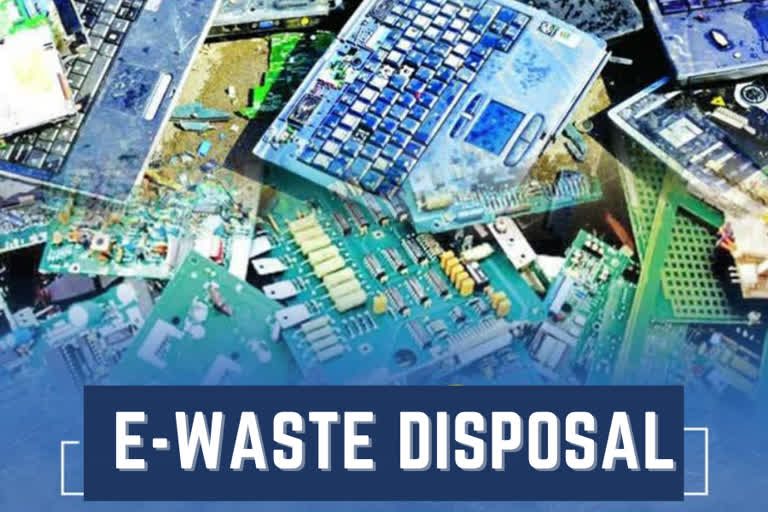Rudrapur (Uttarakhand): With the advancement of technology, IT companies produce millions of electronic gadgets, thus contributing lakh tonnes of e-waste globally. According to the World Economic Forum, the world generated 53.6 million tonnes of e-waste in 2019. That’s about 7.3 kilograms per person and equivalent in weight to 350 cruise ships.
It is estimated that by 2030, global e-waste is likely to swell to 74.7 million tonnes.
In order to resolve this problem, scientists of G.B. Pant University of Agriculture and Technology, Uttarakhand has found bacteria which can degrade the waste materials generated by the electronic equipment in just two days.
While speaking to ETV Bharat, MGH Zaidi, a scientist at G.B. Pant University, said that his team has been working for the last 18 years to deal with the e-waste material.
"We have been using laptops, mobiles, television sets which contribute a million tonnes e-waste. To cope up with this problem, our team have been working on various project related to the decomposition of the plastic. Now, we got success on the decomposition of e-waste materials", said Zaidi.
"We have found bacteria which can easily decompose the plastic material within two days. At present, recycling is the only way to deal with plastic. With the invention of these bacteria, I think it will act as a boom for the environment", added Zaidi.
Further, he appealed the industrialists and entrepreneurs to come forward as they are ready to share the idea of their research.
Also Read: Railways commissions energy plant to turn e waste, plastic into diesel



